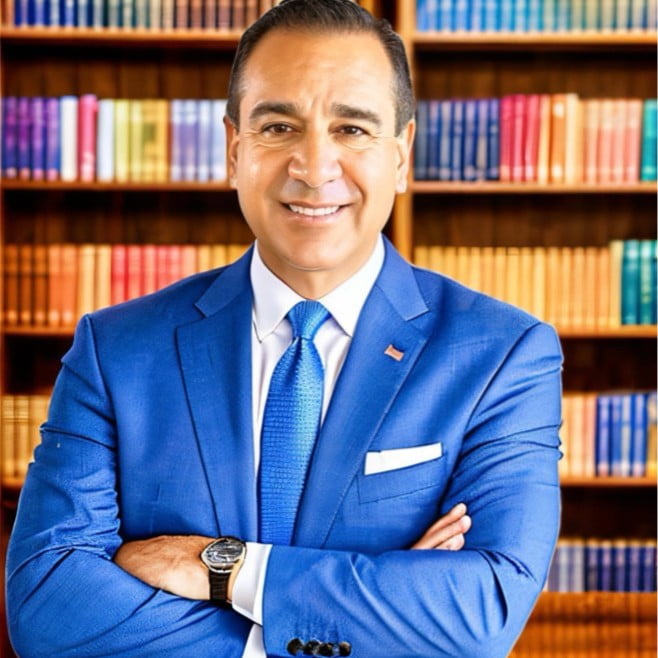What does Excellence taste like?
This article is provided courtesy of theleanmag, a content partner of the Operational Excellence Society.
In the culinary world, excellence is often measured by the ability to create unique flavor profiles, master cooking techniques, and present dishes that are visually appealing. Chefs spend years honing their skills, experimenting with ingredients, and perfecting their recipes in order to create dishes that are truly exceptional. This dedication to excellence can be seen in Michelin-starred restaurants, where every aspect of the dining experience is carefully curated to ensure that guests are treated to a culinary masterpiece.
In the pursuit of excellence, great chefs understand that the smallest details can make the biggest difference in the taste, presentation, and overall dining experience. That’s why attention to detail is paramount. From the choice of ingredients to the plating techniques, every decision is made with care and precision. They carefully choose the freshest produce, the highest quality meats, and the finest spices to ensure that their dishes are bursting with flavor. They pay attention to the cooking techniques, ensuring that each ingredient is cooked to perfection. And finally, they meticulously plate their dishes, arranging each component with precision and care. It is this attention to detail that sets great chefs apart from the rest.
Just as great chefs develop a passion for excellence by paying attention to the details, business leaders can do the same. By embracing a culture of attention to detail, leaders can inspire their teams to go above and beyond, to strive for perfection, and to deliver exceptional results. Whether you are a chef or a business leader, excellence is in the details, and it is through attention to these details that success is achieved.
Can the principles of chef excellence be applied to achieve business operational excellence? In this article, we will explore the contrasts between chef excellence and business excellence and discover how leaders in both fields can learn from each other to achieve success.
Tasteless Lean Projects
Tasteless lean projects, also known as ineffective lean initiatives, can hinder organizational progress and waste valuable resources. Recognizing the characteristics of such projects is crucial to prevent their implementation or rectify existing ones. Firstly, they lack clear objectives and a well-defined goal with measurable outcome. These initiatives fail to provide meaningful value or drive continuous improvement.
Additionally, inadequate stakeholder involvement often characterizes tasteless lean projects. Ineffective communication and insufficient engagement with employees at all levels result in resistance, disengagement, and ultimately project failure. Another characteristic is the absence of accountability mechanisms within the project structure. Without clear roles and responsibilities assigned to team members, tasks may be left incomplete or poorly executed. Furthermore, tasteless lean projects often lack proper data analysis and measurement systems.
In my journey to help companies achieve excellence, I have seen many tasteless lean projects that don’t apply the LEAN recipes and standards. These tasteless lean projects end up half-baked, bitter and with no real solutions. Team members are frustrated, not engaged and use short cuts to get out of the projects as soon as they can.
So, I was thinking, what if Gordon Ramsay did a taste test of some of these tasteless lean “dishes” prepared by CI teams, what would he say? Would he say, “well at least the team tried”, or “the cooks (CI team) had fun working on this project, so let’s give them credit”. NO, he would blow a gasket! Why? Because he has very high expectations of his team to deliver professional, well planned and executed results. I’m not saying that leaders should blow a gasket, but they should set the right expectations and lead the teams to success.
Leaders with little to no enthusiasm
In both the culinary world and the business world, leaders play a crucial role in driving excellence. They set the tone, inspire their teams, and create an environment that fosters creativity and innovation. However, not all leaders possess the enthusiasm and passion necessary to drive excellence. Some leaders may lack the motivation to push their teams to excel, resulting in lackluster performance and mediocre results.
In the culinary world, a chef who lacks enthusiasm may produce dishes that lack flavor, creativity, or presentation. Without a passion for their craft, these chefs may simply go through the motions, creating uninspiring dishes that fail to impress diners. Similarly, in the business world, leaders who lack enthusiasm may fail to inspire their teams to go above and beyond. Without a genuine passion for their work, these leaders may struggle to create a culture of excellence, resulting in a lack of innovation, poor performance, and ultimately, a decline in business success.
To achieve excellence, leaders in both fields must develop a genuine passion for what they do. They must inspire their teams, set high standards, and lead by example. Just as a passionate chef can create dishes that are bursting with flavor and creativity, a passionate business leader can drive innovation, motivate their team, and create a culture of excellence. Without enthusiasm, excellence becomes elusive, and both the culinary world and the business world suffer as a result.
Essential qualities of a great chef
Customer focus: One of the most common mistakes in lean projects is failing to prioritize the needs and preferences of customers. Without a deep understanding of what customers value and desire, lean initiatives can end up delivering solutions that are irrelevant or unappealing. Leaders must possess the qualities of adaptability and flexibility to effectively navigate through uncertain waters and customer demands.
Passion: A great chef must be passionate about food and cooking. They have to genuinely enjoy the whole process of procuring, preparing, cooking and serving food and have to be able to design menus too. Business leaders should also ensure quality, excellence, creativity and passion in their role. By learning from the principles of chef excellence, business leaders can drive innovation, inspire their teams, and create a culture of excellence that sets their organizations apart. Whether you are a chef striving to create the perfect dish or a business leader aiming to deliver exceptional results, the pursuit of excellence requires passion, dedication, and a willingness to go above and beyond.
Leadership skills: It is the chef who is responsible for the kitchen. They must be able to give direction to their teams and maintain an amicable atmosphere. They need to guide, coach and monitor their teams so that the operations run smoothly. The business leader’s role is a critical part of driving excellence. A leader must lead in creating an environment that supports excellence by inspiring employees and teams to go above and beyond expectations. This can be done by setting up clear goals, removing barriers to success, providing training and ensure the teams have enough resources to contribute to the improvements.
Creativity: It is taken for granted that a chef will be creative. It is this quality that brings in the customers. If leaders want teams to be innovative and creative, they need to be willing to think outside of the box. If you want your teams to be more engaged, you need to explain to them what the big picture of success looks like. Then make sure they understand why they’re doing what they’re doing and how they are part of the big picture.
Commitment to quality: Every chef needs to be committed to quality using only the freshest and best quality ingredients and the best techniques to produce tasty food of the highest grade. When business leaders create this kind of culture, their teams will naturally follow suit. Excellence can’t be achieved overnight. It requires a conscientious and continuous effort. It’s important to have clear objectives, which is a common failure in tasteless lean projects. Without well-defined goals and measurable outcomes, these initiatives fail to provide meaningful value or drive continuous improvement.
Driving excellence without setting clear goals, continuously acquiring new skills and knowledge, and seeking feedback to identify areas of improvement will be setting your team up for failure.
It’s important to keep CI projects as simple as possible. It’s very easy to make things complicated and CI professionals need to avoid complex models for improvement. Keep it simple, if it takes a lot of explanation and teams do not immediately connect with the goals of the project, it will be difficult to meet expectations and achieve sustainable results. Every improvement project must make the experience better for the customers and simpler for the teams.
Handle criticism: Achieving excellence may not always taste sweet. In fact, during the journey, it might sometimes taste bitter, as you’ll encounter hardships, defeat, and criticism. There is no guarantee that everybody will always love the food cooked by a chef. It’s important that leaders learn how to handle criticism and are able to handle it with equanimity, analyze the feedback and take appropriate action on it. As you navigate your way through struggles and challenges, the taste of your journey becomes richer and more nuanced.
Attitudes can profoundly affect a person’s drive towards achieving excellence. A positive attitude allows individuals to view challenges as opportunities for growth and enhances their ability to bounce back after setbacks. The attitude of gratitude is key; appreciating every learning opportunity–the successes, failures, and struggles–alters the taste of the journey towards excellence, making it more bearable and eventually more satisfying.
Leading with humility is key to a successful leader. It requires the strongest of individuals to have the strength of character and courage to show vulnerability to lead with humility. They will be prepared to admit that they do not know all the answers and can learn from everyone else around them. It’s important that they practice being egoless, in the words of Albert Einstein, ‘A true genius admits that he/she knows nothing’.
The Taste of Excellence
The taste of excellence is not a one-size-fits-all taste; it’s a subjective experience. For some folks, it might taste like the satisfaction achieved from accomplishing a long-standing goal. For others, it could be the surprising sweetness of an unforeseen accomplishment, or the pleasure derived from carrying out their passions. While these flavors carry individual interpretations, they all have one noteworthy commonality: the unique savoriness of success.
The flavor of excellence offers an unparalleled taste, once experienced, is unforgettable. This distinctive taste inspires a continuous drive for improvement and stimulates progression while simultaneously creating an irresistible appeal for consistent development. Thus, the aftertaste of excellence primarily cultivates resilience, continuous progress, and an insatiable desire for success.
Ultimately, excellence is not just about recognition or accolades. It is about the commitment to continuous improvement, the passion for the craft, and the willingness to go above and beyond. Whether you are a chef or a business leader, strive for excellence not for the external validation, but for the satisfaction of knowing that you have done your best, that you have created something truly exceptional, and that you have made a positive impact on those you serve.
Even though the journey to excellence is filled with difficulties, it is just as rewarding. When the fruits of persistence and dedication are finally ripe, and excellence is within one’s grasp, it tastes sweet and gratifying, a well-deserved treat. The taste of excellence leaves a lasting impression, reminding individuals of the complex path they followed to attain it.
Excellence, indeed, is not a destination but a journey – a journey where every step forward is a testament to one’s determination, resolve, and character. Necessarily then, the understanding and inculcation of this taste, and the identification of the attendant challenges, is a potent force for the betterment of self, and your business. Beyond its taste, excellence lingers as an essence, reshaping our existence in its unbeatable mold.
So, next time you sit down for a delicious meal, take a moment to appreciate the parallels between the culinary world and the business world. And remember, excellence is not just about achieving process KPI’s but about the journey—the relentless pursuit of perfection, the attention to detail, the commitment to continuous improvement and the savory taste of success. Bon Appetit!
The Author
Carlos Cruz is known as an innovator and cultural reformer that revolutionizes traditional leadership management practices into a diverse and all-inclusive Operational Excellence organization by implementing the Shingo world-class principle and strategies. Under his leadership, he has deployed organizational changes that directly impact cultural inefficiencies and behavioral tendencies that affect business profitability and effectiveness.







